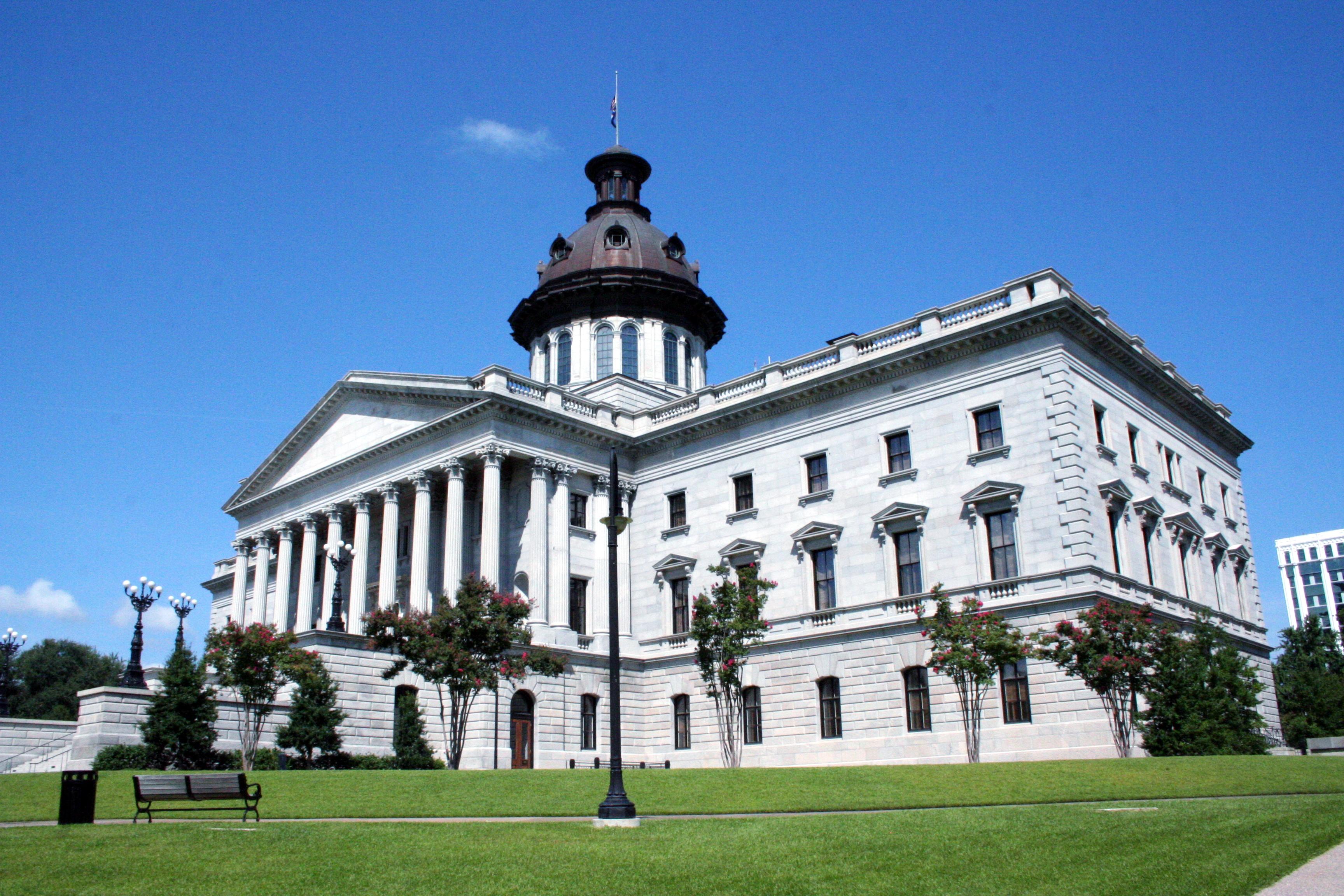A Worthy Celebration

Dr. Oran Smith
September 17 marks the 229th anniversary of the adoption of the U.S. Constitution. Last weekend, Palmetto Promise Institute was pleased to partner with Heritage Action, NFIB, Palmetto Family Council, ALEC and others in recognizing this red-letter day by hosting “Our Constitution, Our Voice” at the State Museum. Video highlights will be posted here soon, but here are some pictures.
As we gathered around the symbolic birthday cake on Saturday, we reflected on the fractious election season that supplies the backdrop for this year’s commemoration, but were not dampened in our embrace of the value and blessing of our uniquely-constructed founding charter.
From a Palmetto Promise perspective, here are just two reasons to celebrate our Constitution.
Separation of Powers
We should celebrate the Constitution because it replaces the tyranny of the majority with consent of the governed. It is ironic that what seems to frustrate Americans most about Washington and the power that protects us from Washington is rooted in the same philosophical doctrine which undergirds the Constitution: separation of powers. Three co-equal branches of government, each with its own distinct but necessary role, work in tension to shape, enforce and provide legitimacy to the law.
This system of governance, set forth by the founders and enshrined in our Constitution, makes governance necessarily difficult. Separation of Powers makes the will of the majority unable to roll over the minority. Separation of powers also requires effective governance to be a deliberative process. These checks and balances make the Constitution one of the preeminent legal texts of all time.
John Rutledge, first Governor of South Carolina, signer of the Constitution, and second Chief Justice of the United States said in his speech On the Judiciary Establishment, “no man is so absurd as to propose the people collectedly will consent to the prostration of their liberties, but they be not shielded by some constitutional checks, they will suffer them to be destroyed.” Our own John Rutledge understood that too much power vested in one branch of government is dangerous to a free people, so he signed his name to a Constitution that provides power but dilutes it across three organs of government.
We can bemoan gridlock stemming from an ever-widening ideological gap between two political parties (which are not enunciated in the Constitution by the way), but our frustration should be tempered with an understanding that an element of gridlock due to separation of powers is inherent in our system. Although the progress may seem maddeningly slow, the alternative is European-style democracy that even more efficiently treads on the liberties of a free people.
Division of Powers
We should also celebrate the Constitution because it has given us federalism, which recognizes the need for national cohesion, but reserves the right of every citizen to be primarily governed by the power closest to them. South Carolinians are governed both by the South Carolina Code of Laws and by the U.S. Code of Laws. Federalism, virtually invented by the United States Constitution, is another concept worthy of celebration.
Federalism is best summed up by our nation’s motto: “e pluribus unum” which means “out of many, one.” Although one nation, bound together by the U.S. Constitution, we are a people governed by fifty separate sovereignties as well. As the Tenth Amendment makes clear, only specific powers given to the Federal Government by the Constitution are to be exercised by it. All other powers remain with the states. This is to be celebrated, for as the saying goes, “power corrupts, but absolute power corrupts absolutely.” When the Constitution is honored, there is a limit to political power. The Bill of Rights makes this distinction clear, but even if there were no first ten amendments, the Constitution assigns only certain powers to the federal government while reserving all other powers to state governments.
Federalism is the Constitutional gift that keeps giving, inspiring innovation and allowing states to compete. This “competitive federalism” makes good public policy here and organizations like Palmetto Promise not only desirable, but essential. States with strong executive leadership, competitive tax policies, strong technical colleges, and innovative public schools attract jobs and investment. Status quo states lag. Federalism can serve as a defensive measure too. Witness our successful fight against the National Labor Relations Board (NLRB) in defense of the Right to Work without joining a labor union. The fight against Obamacare has had few victories, but most have been federalism-based wins.
Yes, 229 years is worth celebrating. But let’s not let our celebration be a passive affair. The best way to celebrate our Constitution is to work to preserve it. That’s part of our work at Palmetto Promise too. There is no blinking at the fact that separation of powers and federalism have been under threat for decades by creeping federal power, rising federal spending in the states, and federal judicial and executive overreach. Let’s stay in the fight. On September 17, may we commit ourselves again to our national charter with the words of Benjamin Franklin ring in our ears that we have “a Republic if we can keep it.”











